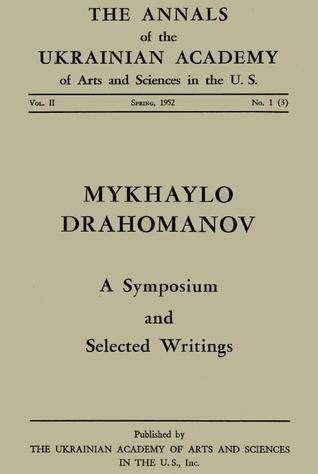What do you think?
Rate this book


Hardcover
First published January 1, 1952
The present volume which is published as a special issue of the Annals presents a symposium of studies devoted to Mykhaylo Drahomanov and a selection from his own works. It is intended to acquaint the English speaking world and in particular American and English students of East European history with the life and work of Drahomanov.